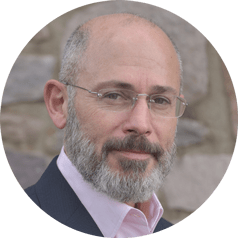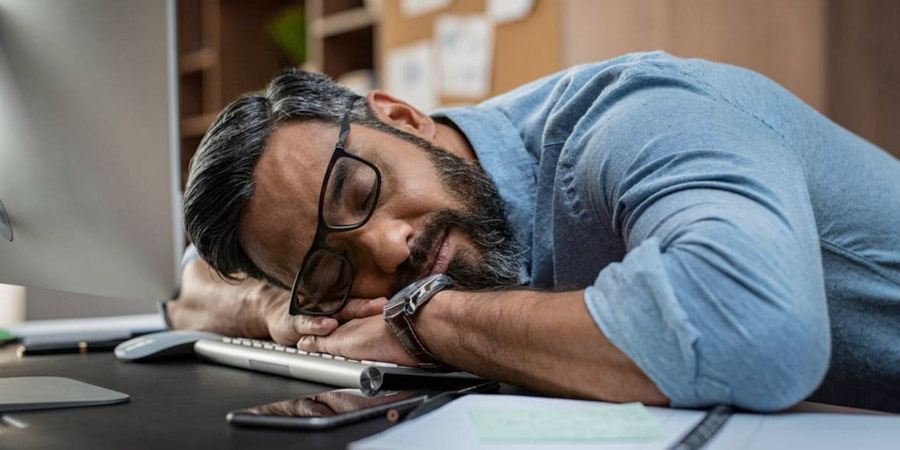The search for quality sleep leaves patients restless for answers…and a solution
We’ve all heard the phrase “go sleep on it”—most of us have been given that advice when we’re dealing with a difficult problem or need to make a big decision. We now know that this advice is actually rooted in science, since our brains are hard at work cleansing out the negative while we’re fast asleep. Read on to find out why.
Sleep deprivation is so common that it’s the one health challenge 99.9% of patients complain about. While some people have trouble falling asleep, most tell me they can’t stay asleep and are wide awake at 2:00, 3:00, 4:00 in the morning.
Grow Your Knowledge of Functional Medicine
Subscribe to the Root Cause Solution Report and grow your knowledge of functional medicine with clinical insights from me each week.
Everyone has sleepless nights on occasion, but chronic sleep deprivation is what creates health problems. A number of ongoing scientific sleep studies are looking at the importance of sleep on our mental and physical health, and it’s been determined that if a person sleeps four hours or less for just one night, there is a 70% decrease in their “natural killer” immune cells—these are the cells that fight off cancer. And after one week of sleep deprivation, for a male, testosterone levels drop to that of someone ten years older.
This is just a small example of the devastating impact poor sleep can have on mental and physical health as well as cognition, which is why so much research is now being focused on the biological function of sleep from an evolutionary perspective.
During deep sleep, when energy production of neurons and ATP slows down, the brain actually shrinks, allowing cerebral spinal fluid to wash out adenosine, impurities, and toxins via the lymphatic system. The brain is made of 90% immune cells, called “glia” and only about 10% neurons. This new finding for how the glia activate the lymphatic system has given us profound new insights into brain and sleep physiology, and why the morning, waking time of day that leaves us feeling refreshed and energized is so critical to health and healing. To understand sleep health better, we need to look at the three stages of sleep.
The first stage of sleep is “light sleep”. This is the shortest stage of sleep, lasting only up to 30 minutes, when our bodies rest and begin recovering.
WATCH NOW
Dr Pucci’s “learn on demand” virtual wellness courses are available now by registering at https://learn.getwell-now.com
The second stage of sleep is “deep sleep”. In this stage, the active memories from the day are being solidified so that we can remember things the next day and beyond. This is why people who don’t achieve deep sleep have a hard time with recall.
The third stage of sleep is REM, or rapid eye movement, also called the “dream state”. In REM or the dream state, the brain is interconnecting solidified memories, which helps to creatively define solutions to problems…and this is where the advice to “sleep on it” comes from.
REM sleep is also considered to be “emotional first aid” because this is the only time our body is not producing adrenaline, the stress hormone. During this time that adrenaline is not being produced, our brains take the opportunity to decompress by separating memories from emotions. This action helps downregulate the heightened emotional responses behind memories and allows us to become more creative with our memories, applying them to craft, leisure, problem solving, and decision making.
We hear it all the time from artists of all types—whether musician, painter, scientist, writer, etc.—who say they woke up with a great idea or a solution to their artist’s block; that idea or solution happened during REM sleep! Don’t have any dreams? That’s not a good sign because it means REM sleep has not been achieved. Therefore, memories aren’t interconnecting and creativity that would otherwise lead to healthy problem solving isn’t happening.
If there’s one thing that allows for better sleep (and it also happens to be something our brains love), it’s a ritual that follows a natural circadian rhythm of day and night; meaning, our biorhythm wants to be in sync with the Earth’s. Roughly a third of our life is spent sleeping. And what “enough sleep” is can vary by the individual—some people may need 7-9 hours while others function perfectly well on less, much the same way that some people are more productive in the morning while others get more done at night.
Learn more about the function of sleep and the brain biochemistry. Watch Episode 12 of The Root Cause Solution Radio Show, where I discuss “Sleep and Brain Detox Chemistry” and answer listeners’ questions. Short on time? Become a subscriber on YouTube for this and all episode trailers. Go to https://bit.ly/DrPucciYouTube
Dr. Douglas J. Pucci, Founder, Pucci Wellness. Bergen County, NJ - Expert Functional Medicine & Functional Neuroimmunology, certified Advanced Functional Medicine Clinician located in Oradell & Virtual Nationwide, offering compassionate care to patients who've tried everything and still don't feel well. Loved by many, trusted by 1000's, Pucci Wellness is dedicated to helping you move forward with a personalized plan for healing.






